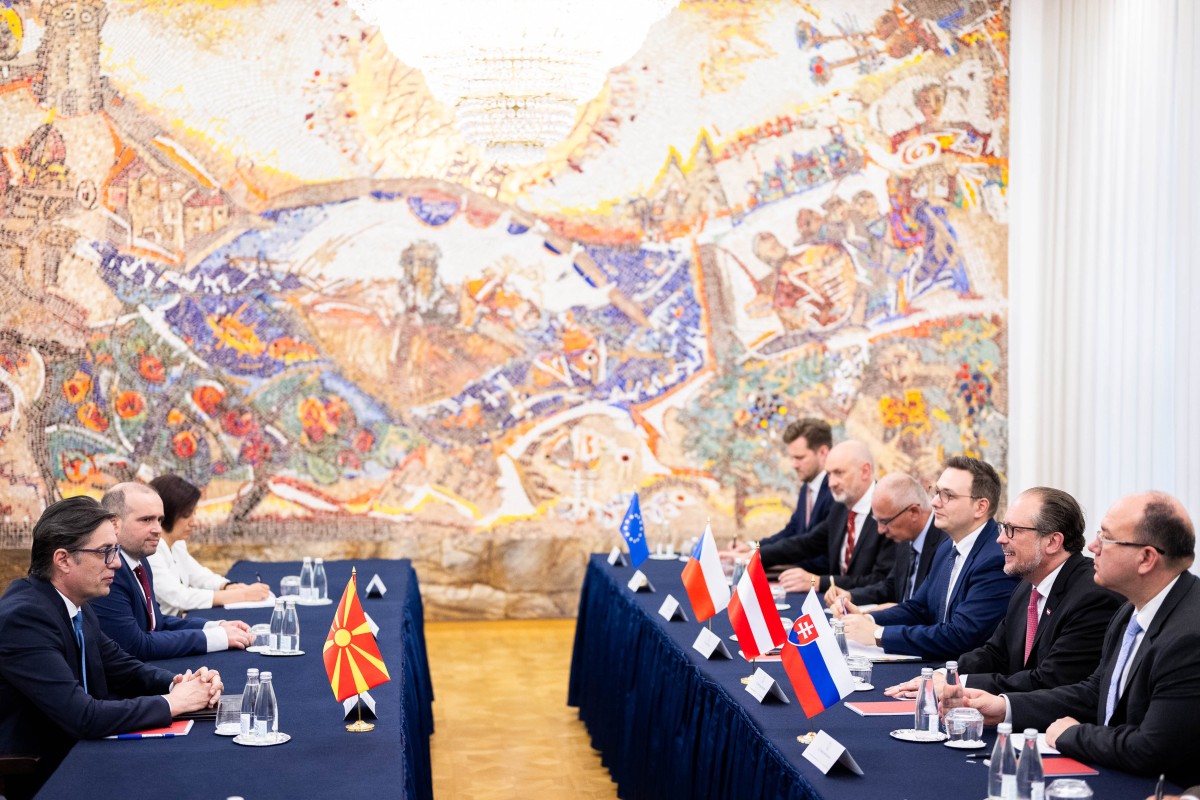Sponsored Content
Foreign Ministers of Slavkov Format Countries Hold Talks with Key Political Actors in North Macedonia
Foreign Ministers Jan Lipavský, Miroslav Wlachovský, and Alexander Schallenberg held talks with representatives of the government, parliament, and parliamentary opposition in Northern Macedonia. The aim of the ministers' visit within the framework of the Slavkov format countries was to support North Macedonia on its way to the European Union and to listen to the views of key political actors.
 The visit of the three foreign ministers of the Slavkov Group was made on behalf of the EU High Representative for Foreign Affairs and Security Policy, Josep Borrell. / Picture: © BMEIA Bundesministerium für Europa, Integration und Äußeres / Gruber / Flickr Attribution 2.0 Generic (CC BY 2.0)
The visit of the three foreign ministers of the Slavkov Group was made on behalf of the EU High Representative for Foreign Affairs and Security Policy, Josep Borrell. / Picture: © BMEIA Bundesministerium für Europa, Integration und Äußeres / Gruber / Flickr Attribution 2.0 Generic (CC BY 2.0)
The ministers visited northern Macedonia at a time when the country is discussing constitutional amendments, the approval of which is a condition for further progress in accession negotiations with the EU. The ministers were acting on behalf of the Council of the EU and under a mandate from EU High Representative for Foreign Affairs and Security Policy Josep Borrell.
The foreign…
or Log In
Fast News Search





